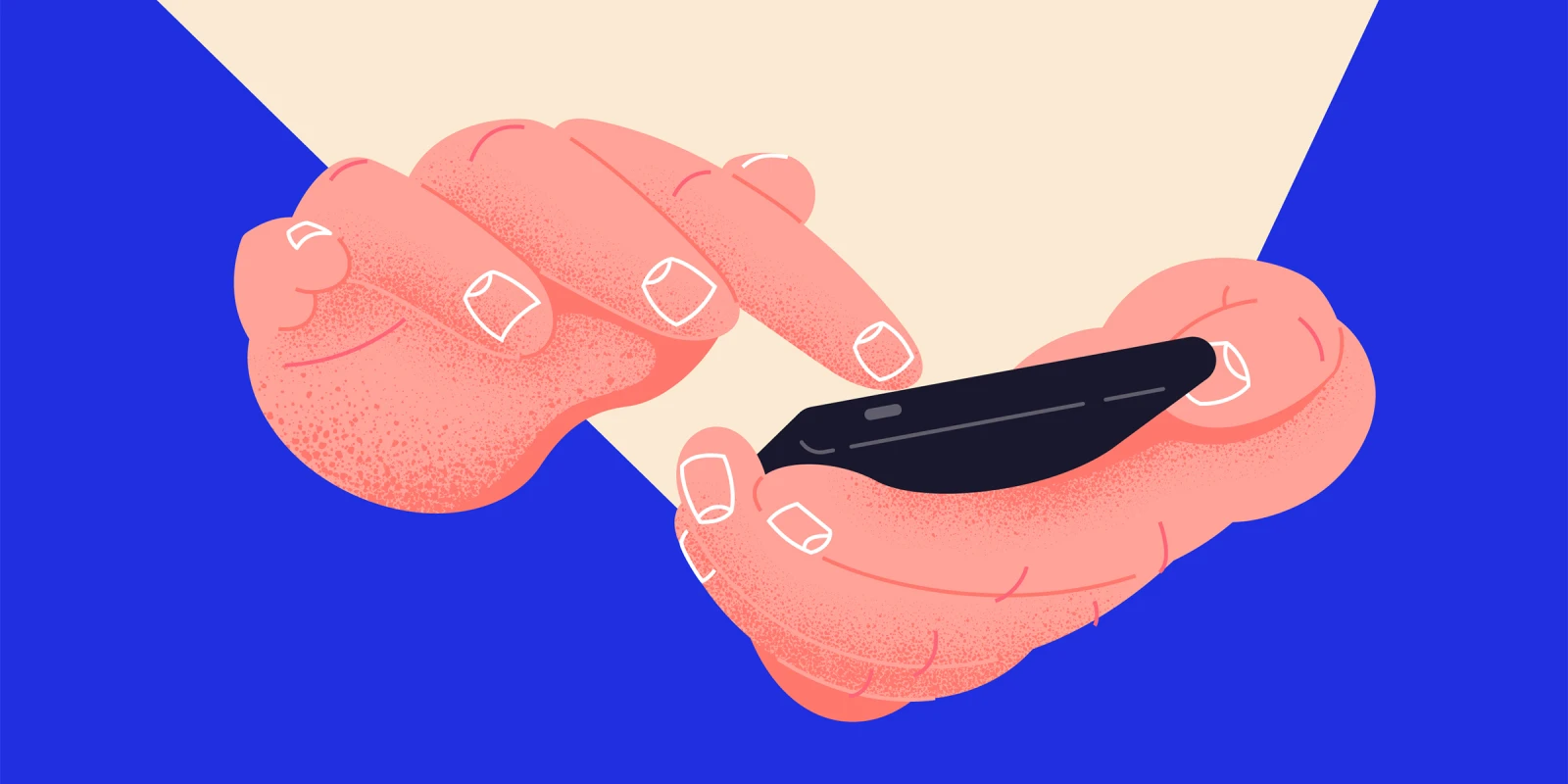Recently, I was sitting on the couch with a friend, both of us mindlessly scrolling on our phones, when out of the blue she said, “I swear, my feed is trying to convince me that I have ADHD!” We laughed, but the moment made me pause, reminding me of clinical encounters I’ve had as a psychiatry resident. I recall once introducing myself to a patient in the hospital who told me that they thought they either had OCD, ADHD, borderline personality disorder, or a combination of the three, though had never discussed any of these diagnoses with a professional. Later, out of curiosity, I messaged a few friends from medical school in different specialties to see if the social media call to self-diagnosis was a shared experience, and all of them answered with varying degrees of assent and frustration.
When it comes to mental health and psychiatry, awareness is soaring even as access to care is lacking. A recent study projected that there will be a shortage of roughly 14,000 to 31,000 psychiatrists by 2024, which means that patients who have questions or concerns about their mental health may have to wait months to see a psychiatrist. Given this lack of access, it’s unsurprising that social media has become a resource for many patients who are curious about mental health topics. Online, videos and posts by users sharing information about their diagnoses and treatments are abundant. Many of these videos feature eye-catching captions — “5 triggers for people with ADHD”; “6 Quiet Signs You Have Borderline Personality Disorder”; “What Fake OCD Looks Like.” Data from 2021 showed that the optimal video length for content creators is 21 to 34 seconds, and so the content of these posts can be frustratingly broad and generalizable. For example, I watched a video that labeled being “addicted to caffeine” as a sign you might have ADHD, likely referring to the unconscious use of an easily available stimulant to help with concentration. Does this mean we need to test everyone with a regular Starbucks order? Probably not, but here we run into the dangers of losing nuance and specificity.
Compounding this issue is the fact that today’s patients view feeds on social media generated not by their own actions, but by algorithms: rather than choose what to see (e.g., posts from friends and family or preferred content creators), users are inundated with content selected for them based on a complex set of rules. In practice, this shift in the dissemination of information means that interacting once with a video on a specific topic, such as ADHD, can quickly and easily lead to a user’s platform becoming inundated with videos containing similar content. The sheer repetition of material can make it appear more legitimate and credible, and transform curiosity into belief.
There are numerous cons to this new reality of mental health-saturated social media. The main one is the concept of self-diagnosis — when patients see someone talk about a diagnosis online and soon wonder if they have it too. The problem is that when patients walk into a psychiatrist’s office with a specific diagnosis in mind, it flips the expected script of an initial appointment. The process of diagnosis in psychiatry is that of investigation, of obtaining a thorough history, relevant labs/imaging, and information from friends and family when creating a differential of potential diagnoses. However, this process can become more difficult when diagnostic criteria are brought up in the first 15 minutes of an appointment, or patients describe their symptoms using “textbook” terminology. Additionally, there is understandably a want from patients to get an “answer” for their symptoms, a process that not only takes time, but sometimes may be unsatisfying. Rushing this process raises the risk for misdiagnosis and ultimately mistreatment.
In addition, patients may come in with misinformation about their existing diagnoses, especially regarding the need for medications or other forms of treatment. With various algorithms at play, it can be difficult to filter a social media feed for content by creators that have appropriate training — further complicating the issue.
Finally, there are numerous articles and studies being published on the negative impacts that time spent on social media platforms can have on mood and self-esteem. Though this is a discussion that is beyond the scope of this article, it must be acknowledged if we are thinking about the impact of social media on the field.
However, there are also numerous benefits to social media culture. For example, the widespread dissemination of information about mental health has contributed to the ongoing de-stigmatization of mental illness, especially among younger generations of patients. Anecdotally, I have seen this on numerous occasions. For example, a young patient once showed me an Instagram account run by a South Asian therapist that focuses on the unique challenges of growing up in an immigrant household, and shared how it made her feel more validated in her choice to seek care. The numbers also support this trend. In a recent global survey from 2022, Gen Z respondents were the most likely to use digital wellness and mental health apps. They also tend to prefer brands that openly support mental health.
Importantly, social media also creates awareness of the existence of symptoms people might be suffering from but not yet cognizant of. When I was in my intern year of training, I was told that the most important thing to master was trusting my instincts when something felt off or wrong medically. This gut instinct was built off of four years of medical training, and the knowledge that what I was noticing likely was related to a symptom or clinical finding I had learned about but could not immediately identify. With more people online sharing their experiences with mental illness, larger populations of patients may watch something that resonates or similarly helps them realize something might be off mentally or physically, which would hopefully lead them to seek out a more thorough evaluation by a professional.
Ultimately, the question of whether social media is beneficial to the field or not is irrelevant. Regardless of individual opinions, whether this shift causes frustration or clashes with a specific diagnostic style, social media is quickly embedding itself into the landscape of psychiatry. Rather than ignoring it and dismissing patients who spend their time looking online for answers, it may be more effective to acknowledge its presence in the room. Below, I offer steps for engaging with mental health social media — both on your own and with patients.
1) Bring it up!
Unfortunately, we are often working against the clock in the exam room. Thus, directly asking patients about social media posts they’ve been viewing may be the most effective way to validate their concerns while educating them about the significant limitations of bite-sized pieces of information.
2) Bear in mind that social media is filling a gap in care.
Understanding that people go to social media not because they’re inherently gullible but because they’re facing a gap in care can be helpful in approaching your patients from a place of empathy, rather than frustration.
3) Check out the content yourself!
Finally, it can be helpful to look at the content that your patients are seeing on a daily basis. While it’s not possible to keep up with every social media trend as it develops, if TikTok has become a primary source of information for your patients, it might not be far-fetched to make an account so you can see what they see too.
During my training, I have witnessed how social media is quickly changing the landscape of psychiatry. I believe it is paramount for us clinicians to understand and engage with these trends to better connect with our patients. I urge readers to consider making an active effort to understand and engage with social media, even if the effect is not necessarily a clear net positive — because your patients are already doing so.
What's your personal relationship to social media? Share in the comments!
Dr. Avneet Soin is a psychiatry resident in New York City. She is interested in consultation liaison psychiatry and advocacy work, and in her free time enjoys reading and exploring the dessert scene in NYC! Dr. Soin is a 2023–2024 Doximity Op-Med Fellow.
Image by VectorFun / GettyImages







